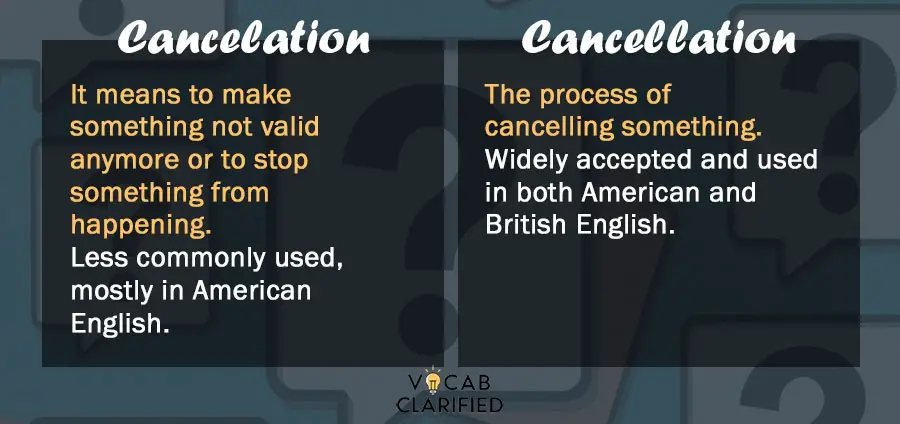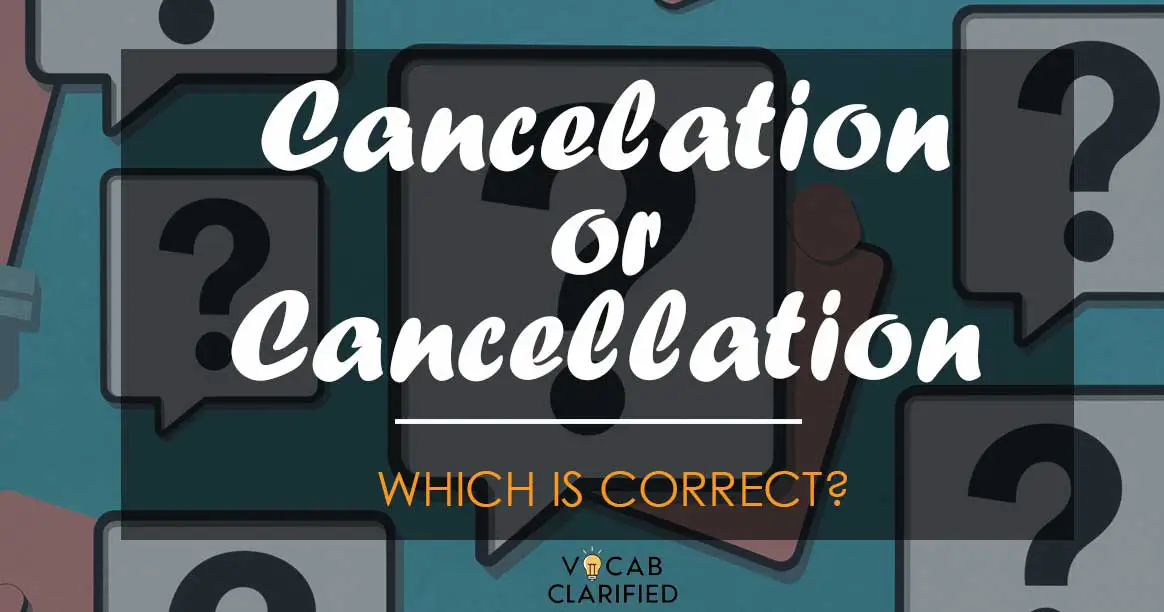This article is going to make it easier to understand the difference between “cancelation” and “cancellation.” A lot of people get confused because these words seem like they can be used in the same way.
We are going to explore if one spelling is better than the other, or if they mean different things. By the end, you should feel more sure about how to use these words correctly.
Understanding Cancelation and Cancellation

Cancelation: Definition and Usage
“Cancelation” is a simpler way of spelling that fits with how American English often shortens words to make them easier to use. It means to make something not valid anymore or to stop something from happening.
For example:
- The cancelation of the event was announced due to bad weather.
- An unexpected cancelation shook our plans.
Cancellation: Definition and Usage
On the other hand, “cancellation” is the more commonly accepted spelling in both American and British English.
It carries the same meaning: the process of cancelling something. For instance:
- The cancellation policy will apply if you decide not to attend.
- Following the sudden cancellation, attendees were in disarray.
Side-by-Side Comparison
| Aspect | Cancelation | Cancellation |
| Definition | The act of making something null or void. | The act of making something null or void. |
| Common Usage | Less commonly used, mostly in American English. | Widely accepted and used in both American and British English. |
| Key Differences | Spelling variation preferred in some American contexts. | The standard spelling across most English-speaking contexts. |
When choosing between “cancelation” and “cancellation,” consider the audience and the predominant spelling standards of the region.
If writing for a predominantly American audience, “cancelation” might be acceptable, though “cancellation” remains the safer, more universally accepted choice.
Everyday Usage Examples
The nuances of “cancelation” and “cancellation” become more evident through practical examples. Here is how both terms fit into everyday language, providing a broader context for their use:
For “Cancelation”:
- The conference’s abrupt cancelation left many speakers scrambling for information.
- Due to the cancelation of our flight, we had to stay an extra night.
- The band’s tour faced a cancelation after the lead singer fell ill.
- A sudden cancelation of the meeting freed up my afternoon.
- The cancelation fee for this service is quite high, isn’t it?
For “Cancellation”:
- The cancellation of the annual festival was a disappointment to the local community.
- After the third cancellation, the workshop series was put on hold indefinitely.
- Her policy includes a 24-hour cancellation clause.
- The television show faced cancellation despite a loyal fanbase.
- Upon receiving the cancellation notice, they immediately booked a different venue.
These examples demonstrate that both “cancelation” and “cancellation” can be used in different situations to describe stopping plans, events, or services.
Although “cancellation” is more commonly used in both writing and speaking, knowing when to use “cancelation” in American English can help you get better at these language details.
FAQ: Cancelation Or Cancellation
“Cancellation” is usually spelled with two L’s.
Both “cancellation” and “cancelation” are correct. “Cancellation” with two L’s is more commonly used, but “cancelation” with one L is also acceptable, especially in American English.
In Canada, “cancellation” is spelled with two L’s.
Conclusion
Now that you have seen “cancelation” and “cancellation” used in examples, the difference should be more understandable.
The secret to getting better at these language details is to know them and then practice. Although “cancellation” is the spelling most people use, knowing that “cancelation” is also an option means you can make smarter choices when you write. Keep this guide handy, and picking the right word will quickly feel like a habit.

